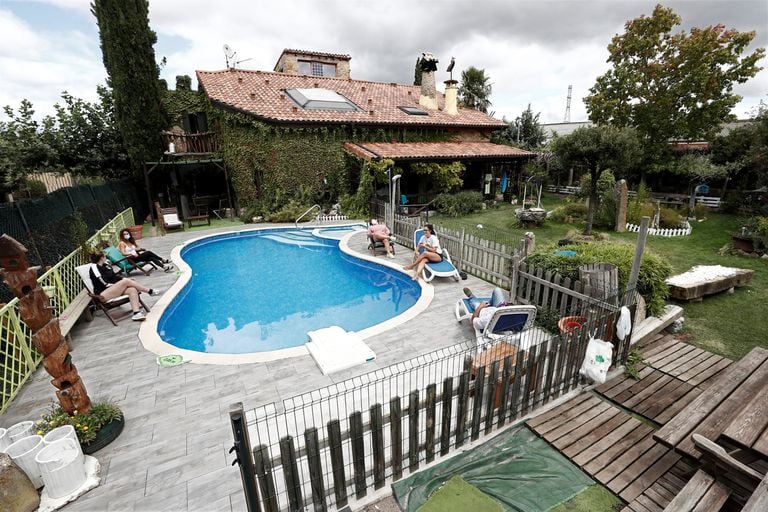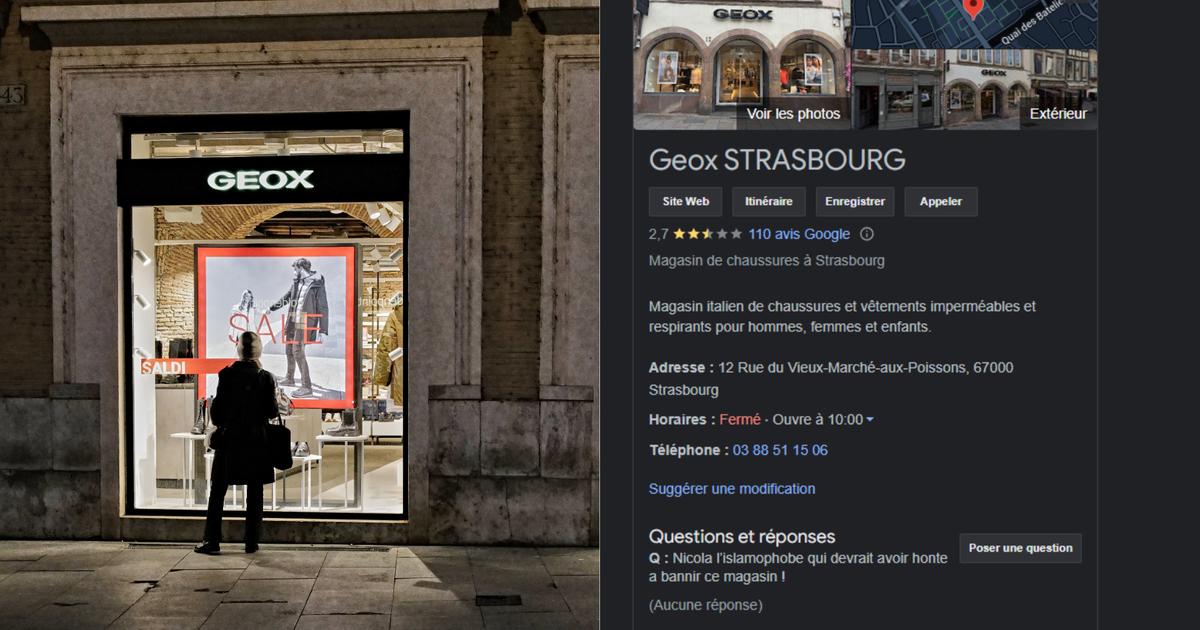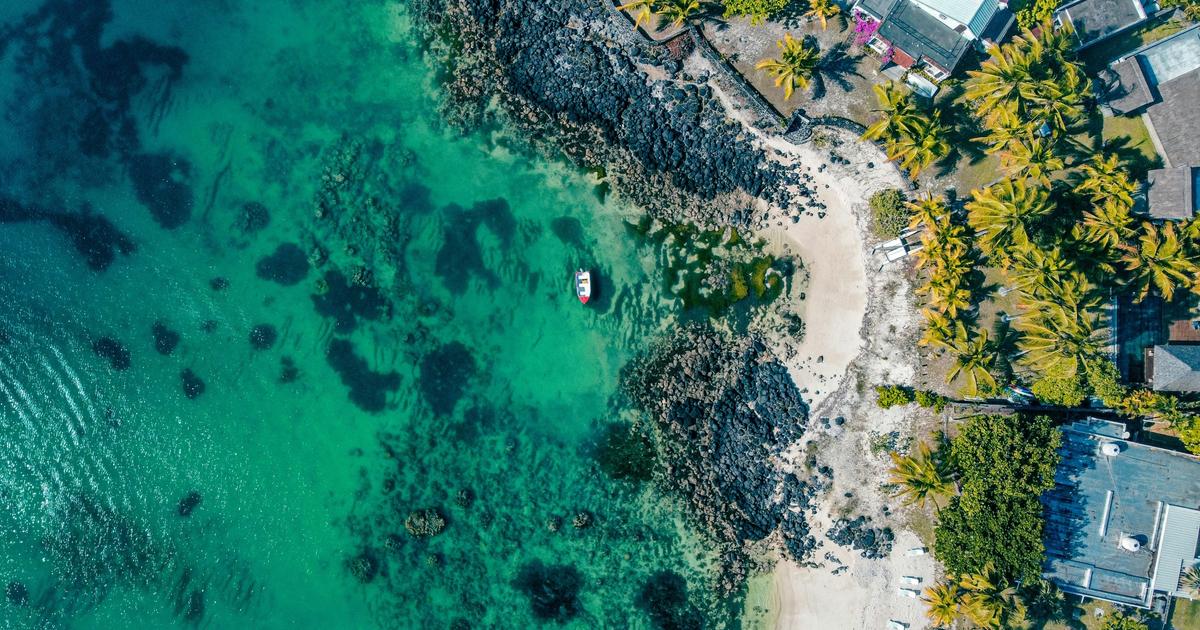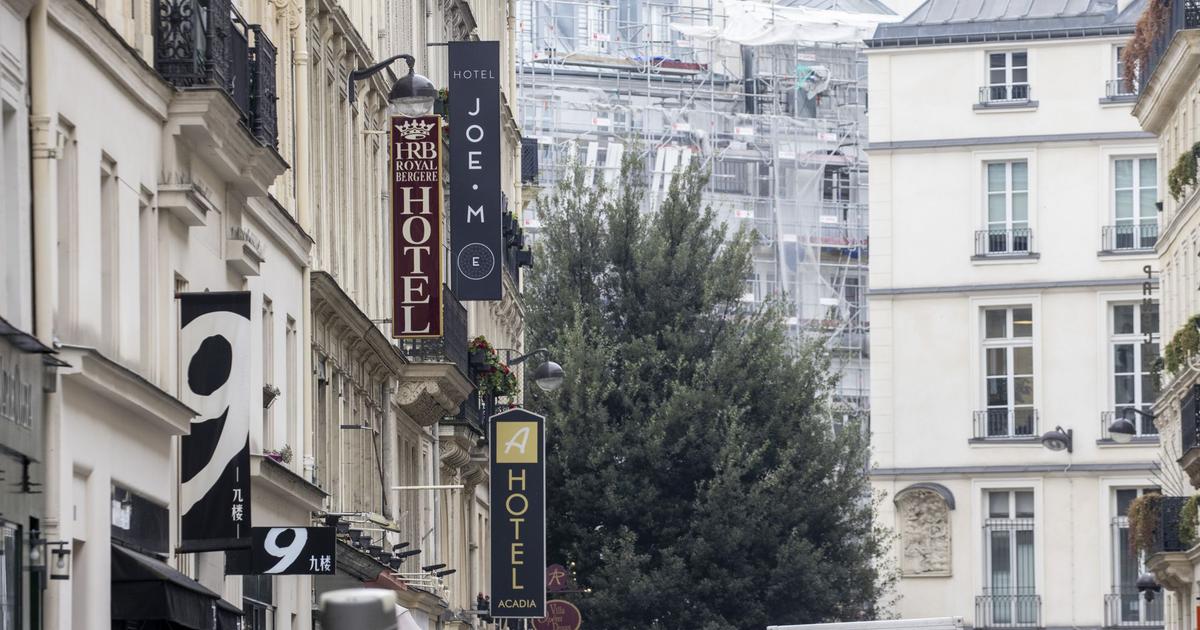Tourists in a rural house in Multiva, near Pamplona, last week.Jesús Diges / EFE
Google has taken another step in its race to dominate the tourism market on the internet this Tuesday, and it has done so months before the travel fever that is expected after the mass vaccination of the population begins.
Hoteliers can compete in the Google search engine face to face and for free with the largest electronic tour operators in the world, such as Expedia or Booking.
Until now, Google only showed the prices of the big tourist agencies that paid ads;
From this Tuesday, share those of all the accommodation owners who want to stand out on the web.
The objective, according to the Palo Alto giant, is to stimulate the participation of hoteliers and agencies in the business.
Google Travel's new policy - that's what its travel reservation service is called - is part of its strategy to establish itself as a digital leader in the tourism sector and take positions in the face of the explosion in demand that is expected in the post-pandemic world.
"When travel really resumes, it will be essential that people can find the information they need and easily get in touch with online travel agencies," the multinational said in a statement.
The initiative joins other projects launched by the technology company in recent months, such as including notices about restrictions due to covid-19 in the establishments and destinations that the user is looking for or free cancellations due to the health emergency.
A tool was also made available to companies to analyze Internet users' destination searches, so that the sector could prepare the ground for when activity resumes.
Fewer intermediaries
From now on, when a tourist dives into the world's largest search engine in search of accommodation to spend the holidays and finds a hotel that he likes, he will have the option of paying the hotelier directly to keep the room, and the hotelier will not. you will have to remunerate Google for the transaction.
Until this week, however, the American search engine only gave the option of buying a room in hotels, hostels and other accommodation through the large tourist agencies, such as Booking, the most used in Spain.
In this way, accommodation owners will be able to avoid the commissions charged by these platforms.
Industry sources emphasize that Google will be the one who will benefit the most from this dispute between large and small, since technology will only give visibility to pages that follow its rules, such as taking care of the user experience, having relevance on the internet or that the price of the room is competitive.
“It is a source of free traffic for the hotelier, but it depends a lot on having a well-assembled digital strategy with Google”, explains Miguel Riego, head of
marketing
at Meliá Hotels.
More information
Tourists are increasingly booking more on hotel pages against giants such as Booking
From Google they assure that the objective of these changes is to expand the offer of room sellers "by improving the search and price comparison experience", which in turn will mean greater price competition and will force margins to be adjusted.
Likewise, they affirm that "it is not a temporary change", so that those who adapt their business to the multinational ecosystem will be able to continue advertising for free in the long term.
Just because Google offers free booking links does not mean that it intends to change its business model.
Free ads will coexist with paid services such as Hotel Ads, with which operators organize targeted advertising campaigns.
The US company argues, in fact, that free links "can expand the reach of current campaigns" for advertisers.
"This change gives hotels and travel companies a new way to reach potential customers," adds a spokesman for the technology giant.
The recent announcement of the elimination of
cookies
(computer files
that are stored in our browser when visiting a page and that obtain data about us)
third parties will also not affect the personalization of hotel advertisements.
Rubén Pérez, head of operations at Rusticae, a small rural accommodation rental portal, also points out that with this change Google will cut its income, since fewer platforms will pay to advertise if it is possible to do it for free.
In this way, Pérez only understands the movement as a strategy of the technology giant to establish itself as the largest accommodation search engine in the world: “I understand that what Google is looking for is to absorb as much traffic as possible, so that people get used to using this platform".
On the other hand, the manager recognizes that it will be very difficult for this change to benefit the small hotelier, such as rural houses or accommodation with little digital budget.
"A hotel, unless it belongs to a large chain, does not have the technical capacity to take advantage of this change," says Pérez on the phone.
From Rusticae they recommend to the 300 rural accommodations with which they operate that they be digitized, since they foresee that in the short and medium term, due to the pandemic, tourists will think about it a lot before opting for one or another hotel.
"Now it is more important than ever to take care of the digital image of the establishment because the client is going to take more time when choosing", concedes the person in charge of the portal.
You can follow EL PAÍS TECNOLOGÍA RETINA on Facebook, Twitter, Instagram or subscribe here to our Newsletter.







/cloudfront-eu-central-1.images.arcpublishing.com/prisa/Z7MKM645QBGTJOMIIEOGHFZOV4.jpg)
